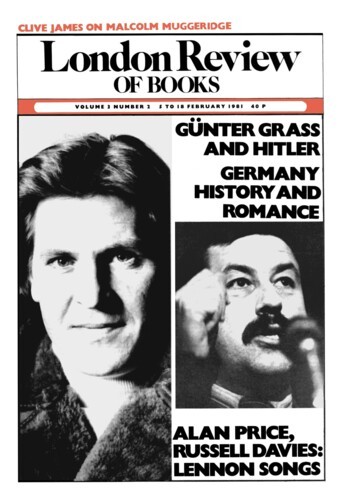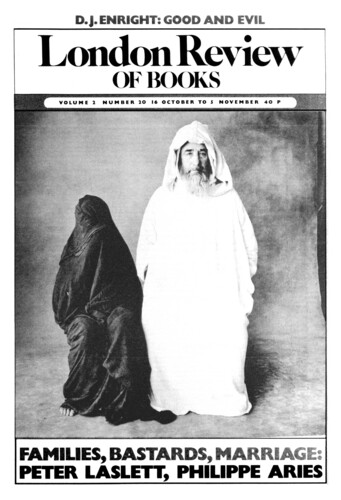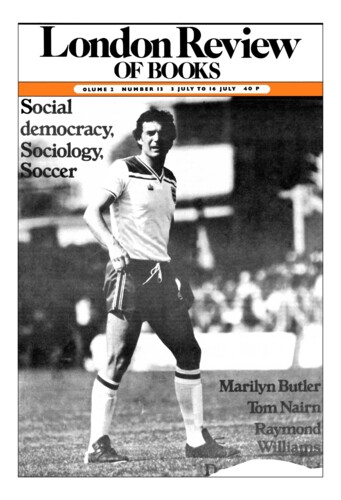After sex, sexology. The making of many extravagant theories about nature’s mysteries is not particularly new, and wasn’t even in the 19th century. Indeed, that century can be seen as a spawning ground for all kinds of ambitious intellectual projects, grand ‘totalisations’ of the varied phenomena of nature and society. Sociology, itself the product of a general feeling that mére history was too narrow a form, has perhaps been the most resilient of these creations. Sexology is certainly the most curious. As writers such as Stuart Hampshire have reiterated, almost all the grand syntheses attempted by the 19th-century intelligentsia share a common aim: to replicate, as far as possible, the achievements and accuracies of the natural sciences. This is as true of the tedious volumes of Herbert Spencer, who needed a special chair, fitted with nails, to stop him falling asleep, as it is of Marxism. It holds, too, for the spate of scientific programmes, many of them German in origin, that were laid down for the attack on the final citadel: sex. Towards the end of the 19th century, science turned its gaze on the thing itself. Unsurprisingly, the campaign produced its own particular range of prophets, seers and sages. Almost all of them were men, and men who shared some physical similarities, if nothing else. Sad eyes, perhaps; beards certainly. Freud remains by far the most powerful and influential, possibly because he was the most pessimistic. Havelock Ellis (1859-1939) seems more elusive.
After sex, sexology. The making of many extravagant theories about nature’s mysteries is not particularly new, and wasn’t even in the 19th century. Indeed, that century can be seen as...



